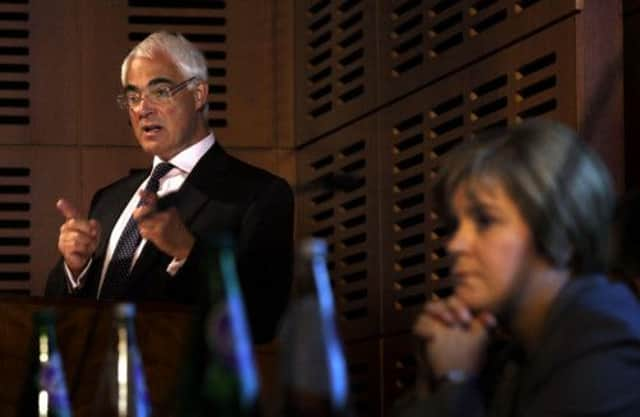Eddie Barnes: Gauntlet thrown down on devolution


The distant power centres in the south needed to wake up to their needs and recognise their special status, the threesome declared. Prior to the independence referendum next year, both the pro-UK and pro-independence sides should explain how they intended to sort things out.
A few miles south, voters in Aberdeen Donside head to the polling station tomorrow to elect their new MSP. The city’s long-standing grumbles over the big-spending Central Belt figure highly. Both this old complaint and the newer campaign by the three northern councils point to a wider issue facing the country – and one that often gets ignored.
Advertisement
Hide AdAdvertisement
Hide AdIt goes back to Robinson’s point – that devolution stopped in Edinburgh. The case for the prosecution goes like this: the birth of devolution in 1999 was supposed to herald a new dawn for Scottish democracy. Instead, the political classes and the media descended on Holyrood and, with ministers desperate to prove they were not the “pretendy” politicians of Billy Connolly’s satire, they focused on anything that asserted their authority.
There was the occasional nod to the rest of the country – such as efforts to relocate civil servants out of Edinburgh – but the trend became clear. How often were policy reforms explained not because they were thought to be good for the country, but because they “proved that devolution was working”?
In 2007, when the SNP took over, ministers unveiled their new broom. A “concordat” with local government was agreed, ring-fences were removed and local government was freed up. But, since then (goes the complaint), a highly political Edinburgh government, fighting a permanent campaign, has asserted rock-solid control over Scotland, bullied critical figures into submission, and taken centralisation to a new level.
Councils, NHS boards, quangos and the rest all have no doubt who is in charge (as witnessed by the documents last week which show the pressure central Government is putting on planners to free up land for wind farms). And while money, or the lack of it, has played a part, too – with the promised savings in the new single police force offered as a rationale for Edinburgh extending its grip – the pattern over the past decade is now well set. Local democracy feels it is getting a bum deal.
As the three northern council leaders have shown, this is not an issue that needs to sit out the independence referendum debate. For the main combatants, the challenge is now laid down: if they want to appeal to all the country, they both need to show how, if they win, to deliver devolution. Proper devolution.